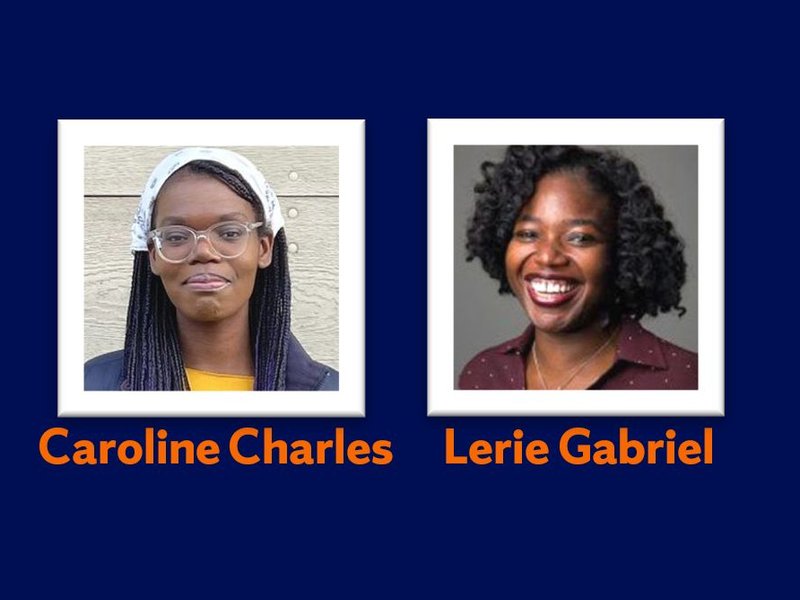HC Dissertation Fellows Envision New Approaches to Inclusive Learning and Archival Studies
Students share insights into their research and the personal experiences that shaped their academic pursuits.

On Feb. 21, the Humanities Center hosted a virtual "Meet the Scholars Coffee Hour" featuring their 2024-2025 Dissertation Fellows, Lerie Gabriel and Caroline Imani Charles. During the event, Gabriel and Charles shared insights into their research and the personal experiences that shaped their academic pursuits.
The Q&A-style session highlighted a common thread in both projects: how Gabriel and Charles both draw from their lived experience to craft dissertation projects focused on the preservation and continuation of Black cultural practices.
Gabriel’s project relates specifically to the field of education. Her dissertation focuses on how to revise one of SU’s courses on technical and professional writing, WRT 307, in a way that naturally integrates diversity, equity and inclusion. Western standards of professionalism― deeply intertwined with white supremacy and a predominantly white-centric framework—initially caused Gabriel to feel as if she didn’t embody “professionalism” as a Black woman in academia. Thus, her work aims to incorporate intersectionality into spaces for learning.
Gabriel emphasizes how DEIA initiatives are frequently treated as compliance-based obligations, resulting in the use of ineffective institutional language, which can feel like a “band-aid-over-bullet-hole” approach to inclusivity. Using Black Technical and Professional Communication, or BTPC, as a framework, Gabriel’s work navigates ways to incorporate DEIA in meaningful ways that don’t feel forced or disingenuous.
Charles’ project dives into the practice of Black archival work through the scope of film, acknowledging the ways in which Black filmmakers preserve Black history and memory. Her idea for the dissertation stemmed from a general interest in on-screen representation of Black people, specifically citing how films could portray the Black lived experience in different ways.
Part of the project’s goal is to celebrate those filmmakers who engage in Black archival practice, while also exploring the exclusions and gaps in historic archives. Charles additionally draws on other Black archival practices outside of the film medium, referencing Toni Morrison’s The Black Book, and photography by Deborah Willis.
Ultimately, Charles' work delves into how filmmaking can become a mechanism of resistance, working against limitations set in place to suppress and erase Black culture in art and history.
In the wake of current mandates to roll back and terminate DEIA initiatives, the work of both Gabriel and Charles feels more important than ever. Whether it’s a course revision that calls upon scholars to incorporate ethics of care and accountability into pedagogical spaces, or a deep-dive into how Black filmmakers produce impactful archival work, the HC Dissertation Fellows’ work reminds us how forms of intervention and resistance are both complex and multifaceted, shaping the way we engage in history and culture.
